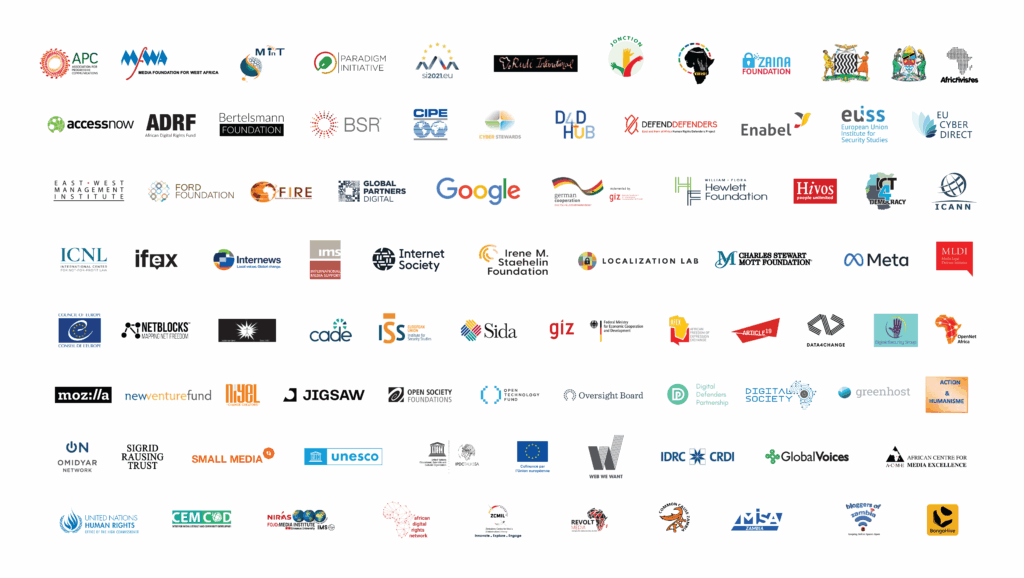By Juliet Nanfuka |
World Press Freedom Day (WPFD) traces its origins to the landmark Windhoek Declaration in 1991, which called for a free, independent, and pluralistic press as essential to democracy and development and was adopted by UNESCO in 1993. Since then, the media landscape has evolved drastically, shifting from print and broadcast to include various digital media platforms. This new age of journalism has come with complex challenges including privacy violations, disinformation, and algorithmic control.
The theme of this year’s WPFD “Reporting in the brave new world – The impact of artificial intelligence (AI) on press freedom and the media” – is a fitting one especially as across the world, developments in technology are having an impact not only in how users engage online but also how journalists navigate news production (See example of Nigeria station launching AI news anchors) and distribution. According to UNESCO, “AI is transforming journalism, providing tools that enhance investigative reporting, content creation, and fact-checking. It allows for greater efficiency, multilingual accessibility, and improved data analysis. However, these advancements also bring risks: AI-generated misinformation and disinformation, deepfake technology, biased content moderation, and surveillance threats to journalists.”
Indeed, these risks are contributing to a downward trend in press freedom. For the first time since its inception in 2002, the Reporters Without Borders (RSF) World Press Freedom Index has ranked the global state of press freedom as a “difficult situation”. According to RSF, in over half of the world’s population, press freedom is entirely absent and practicing journalism is particularly dangerous. In many African countries, these challenges are compounded by internet disruptions, low literacy levels, and a persisting digital divide – one likely to be widened by AI.
An inaugural study into journalists safety in Africa by the Collaboration in International ICT Policy for East and Southern Africa (CIPESA) noted an increase in attacks against journalists, digital media and independent content creators by state and non-state actors through legal and extra-legal measures. With the popularity of and reliance on digital media, governments have been keen on monitoring and regulating online spaces and surveilling journalists thus undermining their privacy and safety.
See: The State of Media Freedom and Safety of Journalists in Africa Report
CIPESA has worked to address the challenges of journalist safety including through research into the pathways and effects of disinformation, campaigns such as #WeekOfSafety which complemented multi-stakeholder dialogues promoting journalist safety and digital resilience in an age of disinformation and AI. With support from the Africa Digital Rights Fund (ADRF), CIPESA has also bridged funding gaps for media safety and integrity initiatives and supported research and training aimed at countering digital threats. At the Uganda national commemoration of WPFD hosted by the Uganda Media Sector Working Group (UMSWG) this year, CIPESA will host a digital security clinic and workshop on misinformation and disinformation.
At the recently concluded Digital Rights and Inclusion Forum (DRIF) hosted by Paradigm Initiative, CIPESA participated in a high-level panel hosted by Media Monitoring Africa (MMA) and UNESCO which served as the launch of consultations on the African Commission on Human and Peoples’ Rights (ACHPR) Resolution on developing Guidelines to assist States monitor technology companies in respect of their duty to maintain information integrity through independent fact checking – ACHPR/Res.630 (LXXXII) 2025. Adopted by the ACHPR meeting at its 82nd Ordinary Session in March 2025, the resolution notes the “regress by technology companies with regard to information integrity and online protection of expression and access to information”. The Commission calls upon the Special Rapporteur on Freedom of Expression and Access to Information in Africa to develop guidelines that can enable States Parties to effectively monitor platforms’ performance in order to inform efforts to advance information integrity online, including the role of independent fact-checking in the African context.
Indeed, at a time when civic space is shrinking while press freedom and access to information are facing even greater challenges, it is only fitting that that the annual Forum on Internet Freedom in Africa (FIFAfrica) hosted by CIPESA heads to Windhoek, Namibia to provide a platform to take stock of the various shifts in the technology landscape that have come to inform the media landscape and to tap into the opportunities that can help shape the internet we want such as through contributing to the development of the afore mentioned guidelines.
See: Forum on Internet Freedom in Africa 2025
The legacy of the 1991 Windhoek Declaration will carry into FIFAfrica25 as the role of technology in enabling the realisation of democracy and development will be the cornerstone of many discussions especially the role it plays in building inclusive, participatory, and democratic societies in the face of AI.






